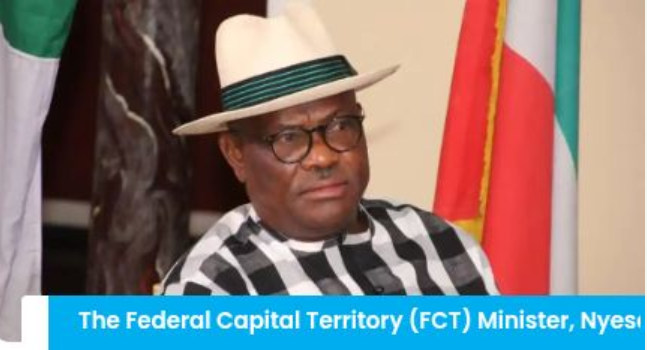
A report by Sahara Reporters, an online news platform owned by African Action Congress’ presidential candidate in the last general election, Omoyele Sowore, claimed that the Minister of the Federal Capital Territory (FCT), Nyesom Wike, boycotted the Council of State meeting.
This in a protest over President Bola Tinubu’s choice of a new chairman for the (Independent National Electoral Commission), and that he influenced other leaders to stay away.
A review of constitutional provisions, official records, and credible media reports shows the claim is largely inaccurate.
Claim 1: Wike skipped the Council of State meeting as a protest
Verdict: False
Under Nigeria’s 1999 Constitution, ministers are not members of the Council of State. The council includes the president, vice-president, former heads of state, governors, and key judicial officers.
There is no record that Wike was expected to attend or that his absence was a protest.
Official State House releases and reputable media reports made no mention of Wike’s attendance or absence.
The report appears to confuse the Council of State with the Federal Executive Council, where ministers are statutory members.
Claim 2: Tinubu ignored Wike’s preferred nominee and picked Amupitan instead.
Verdict: False
On 9 October, President Tinubu nominated Professor Joash Amupitan as INEC chairman, and the National Council of State approved the appointment.
While Sahara Reporters claimed that Wike pushed for Justice Abdullahi Liman, no evidence supports this. No credible media outlet or official record confirms Wike had a nominee.
Claim 3: Wike persuaded former presidents to boycott the meeting.
Verdict: False
Although some former leaders were absent, there is no indication that Wike influenced their decision.
The Council of State meeting proceeded with adequate quorum and unanimous approval of Amupitan’s nomination. No verified source reports any organised boycott.
Claim 4: Sowore’s report on Wike’s Florida properties caused his political decline
Verdict: False
Activist Omoyele Sowore petitioned Florida authorities over alleged undeclared properties linked to Wike’s family. Wike denied the allegations.
While the controversy drew media attention, there is no verified link between the petition and any official action against Wike.
Claim 5: Wike returned from UK treatment and sought to remove Governor Fubara
Verdict: Mixed
Wike’s rift with Rivers State Governor Siminalayi Fubara is public knowledge, including impeachment attempts by the House of Assembly. However, claims that Wike returned from medical treatment abroad to plot Fubara’s removal are not independently verified.
Claim 6: Wike threatened Sowore after Tinubu’s corruption remark
Verdict: Unverified
Following Tinubu’s “no more corruption” comment during a trip to Brazil, Sowore criticised the president on social media. Wike publicly defended Tinubu and condemned Sowore’s statements.
However, there is no verifiable record of any direct threat made by Wike.
Claim 7: Tinubu ordered Wike to stop public briefings and asset amendment attempts
Verdict: Unverified
There is no credible report that Tinubu ordered Wike to halt public briefings.
Sahara Reporters’ claim that Wike tried to amend his asset declaration remains unconfirmed, as neither the Code of Conduct Bureau nor the EFCC has publicly acknowledged such a move
Claim 8: The INEC appointment was not on the Council’s agenda
Verdict: False
The agenda of the 9 October Council of State meeting included INEC nominations, national honours, and presidential pardons.
Reports from the State House confirm that the appointment of Professor Amupitan was expected and formally approved, not a surprise to members.
While elements of the Sahara Reporters article, such as the appointment of Joash Amupitan, are factual, most of its claims about Wike’s protest, influence, and alleged sabotage lack evidence.
The constitutional provisions and available records contradict the assertion that Wike boycotted the Council of State meeting or influenced others to do so.
The claims appear to rely on speculation and unnamed sources rather than verifiable documentation. See, More, Article, Here>>